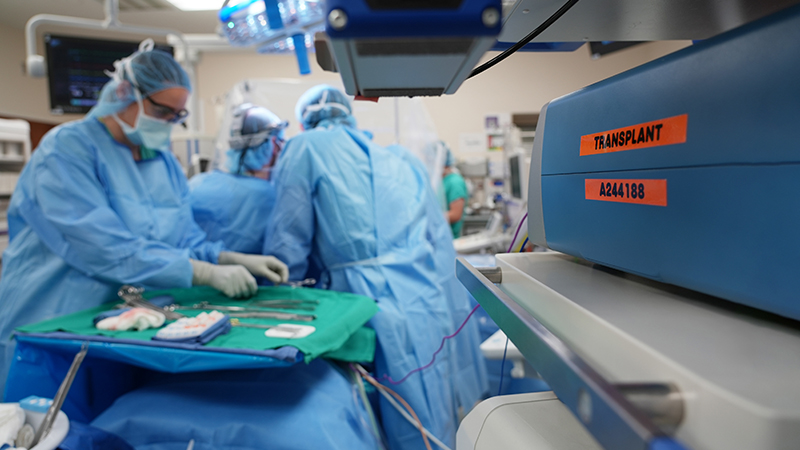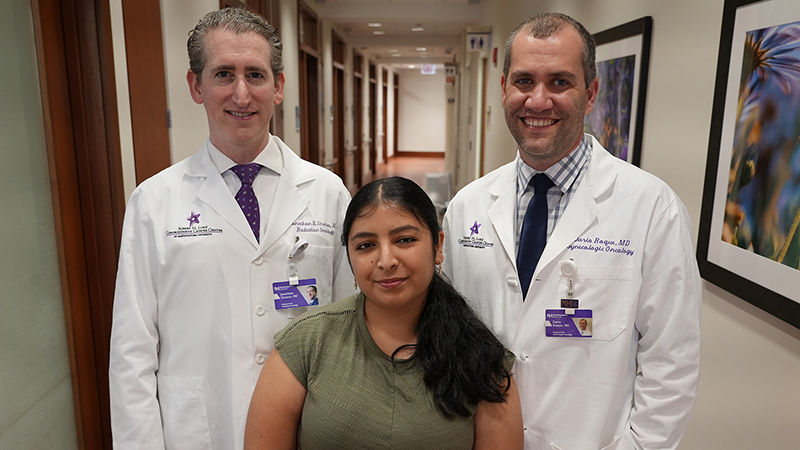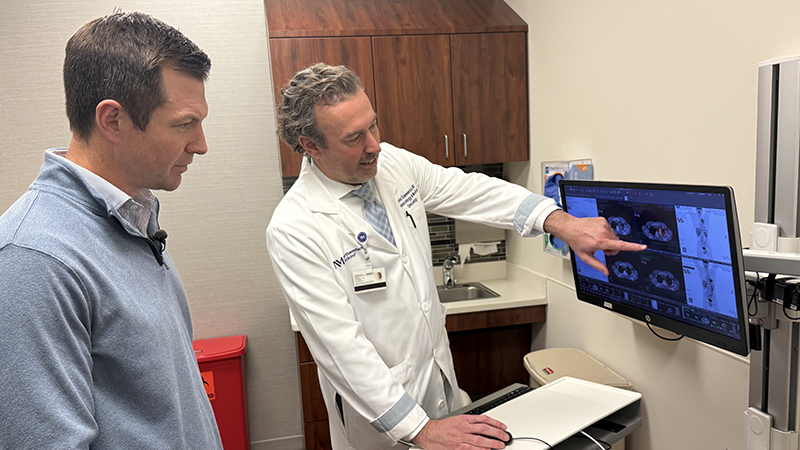Proton Therapy Is Right Choice for Young Patient With Brain Tumor
Landon Stays Active With Precision Radiation Treatment
Published September 2022
Suzanne and Jon Walger of Arlington Heights, Illinois, thought their young son Landon's headaches and vomiting might be symptoms of COVID-19. But Landon, age 7 at the time, had several negative COVID-19 tests and a negative strep test. His blood work was normal.
Then, one Sunday, Landon had a relentless headache and vomiting, and the Walgers took him to a local emergency department. Blood work at the hospital came back normal, but a CT scan told a different story: Landon had a mass at the base of his skull.
He needed immediate treatment, and Suzanne and Jon had to make an instant decision about where to take him. They chose Ann & Robert H. Lurie Children's Hospital of Chicago.
"There was an ambulance taking Landon to Lurie's within an hour," explains Suzanne. "I left home on a Sunday and didn't return home until the following Saturday."
There was no question… It was, 'He needs proton radiation.'— Suzanne Walger
Brain Tumor Diagnosis and Treatment Decisions
Landon underwent surgery to remove the tumor, which was confirmed to be a medulloblastoma. This primary central nervous system tumor begins in the brain or spinal cord and can occur at any age, but is more common in children.
After surgery, Landon's oncology team recommended chemotherapy and proton radiation treatment at Northwestern Medicine Proton Center. Proton therapy is often preferred when children need radiation treatment because it delivers lower doses of radiation to healthy tissues, which can reduce side effects and improve long-term quality of life.
"There was no question from our team," says Suzanne. "It was, 'He needs proton radiation.'"
After Landon was released from Lurie Children's, the Walgers met Stephen A. Mihalcik, MD, PhD, medical director and radiation oncologist, Northwestern Medicine Proton Center.
"Medulloblastoma is a type of cancer that requires surgery, radiation and chemotherapy, in tight and close coordination," says Dr. Mihalcik. "Our team at the Proton Center works directly with the Lurie Children's neuro-oncology and neurosurgery teams to decide together on a plan of care, and we collaborate closely to deliver it seamlessly, from the day of the patient's diagnosis to their follow-up, years later."
In medulloblastoma, cancerous cells can circulate throughout the fluid surrounding the brain and spine, and the radiation approach must reach everywhere that the fluid flows: the entire brain and spine.
"Proton radiation offers a uniquely powerful and safe way to deliver radiation to the whole brain and spine without giving radiation to the rest of the body," explains Dr. Mihalcik. "For pediatric patients, this benefit is especially profound, because radiation causes more significant side effects on growing tissues, and side effects can appear or persist for the rest of the child's life."
Life During Brain Tumor Treatment
Once he started proton therapy treatment, Landon quickly warmed up to his care team. "He knew everyone by name, and they knew his name," says Jon. "I don't think he ever left the Proton Center feeling upset or that it was a chore." In fact, in the final weeks of radiation treatment, Landon showed up for appointments wearing silly wigs as a way to surprise staff members and give them a good laugh.
Remarkably, throughout his nearly two years of cancer treatment, Landon continued to participate in class and extracurricular activities. He attended second and third grades alongside his classmates who were also remote due to the COVID-19 pandemic. He rarely missed a practice or game with his baseball and basketball teams. A planned vacation to Disney World was also kept on the Walger family calendar in between Landon's chemotherapy and radiation appointments.
"We tried to not stop life while Landon was in treatment. As long as he was up for it, we did it," says Suzanne.
Landon was so busy with normal activities during his treatment that his own classmates had no idea he had brain cancer. His story came out after his teacher saw a local news segment about Landon and a fundraising effort led by the Prospect Heights Police Department. She asked Landon if he would be open to sharing the news clip with classmates. He agreed, and she played the video.
"The kids all heard the word cancer and looked to Landon for more information. He told them he has brain cancer. They had no idea," explains Suzanne. "Their reaction — they all clapped for him. To them, he's a TV 'celebrity.' To us, he's the strongest warrior we've ever met."
Landon continues regular checkups with his oncology team, who considers him stable, with no evidence of disease.





